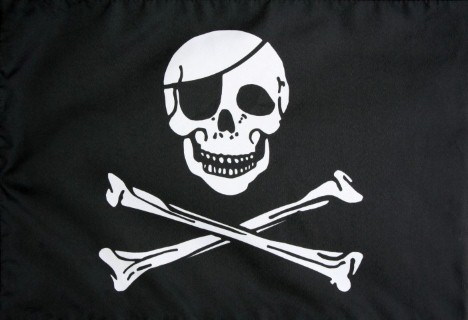New UK Police Unit Helped Close 40 Pirate Websites

PIPCU is fighting against copyright infringement by revoking domain names and putting pressure on advertisers, all without going to court
The recently established UK Police Intellectual Property Crime Unit (PIPCU) has helped close down 40 local and international websites accused of facilitating copyright infringement in the past three months.
The unit instructed domain name registrars to suspend websites, after processing the information provided by copyright holders. There are currently no details on which websites were targeted.
During the same campaign, in an attempt to reduce the flow of revenue to websites profiteering from piracy, PIPCU worked with advertising agencies to stop them from buying banners on such sites. However, rather than putting the pirates out of business, this initiative simply decreased the quality of advertising, putting more users at risk, PIPCU figures reveal.
Who needs courts
As part of Operation Creative, over the summer PIPCU approached the administration of 61 websites and asked them to change their business models to operate within the law, acting on the information supplied by organisations that represent copyright holders including British Phonographic Industry (BPI) and Federation Against Copyright Theft (FACT).
 As expected, the majority didn’t respond, so the unit passed the details of the websites to a number of online advertising agencies and brands in a bid to cut their funding. Today, PIPCU has claimed success, with a 12 percent decrease in advertising from well-known brands on websites featured on its blacklist.
As expected, the majority didn’t respond, so the unit passed the details of the websites to a number of online advertising agencies and brands in a bid to cut their funding. Today, PIPCU has claimed success, with a 12 percent decrease in advertising from well-known brands on websites featured on its blacklist.
However, the empty spaces have been taken up by banners leading to malware-infested or pornography sites. In the wake of Operation Creative, advertising that leads to explicit or malicious content increased by 39 per cent on the affected websites, putting millions of consumers in danger.
Later, PIPCU forwarded the details of the websites it deemed illegal to domain name registrars, with instructions to make them inaccessible worldwide on the grounds they are “facilitating copyright infringement under UK law”. So far, forty websites have been suspended in this manner, without as much as a mention of the proper legal process.
“Together we have created a process that first and foremost encourages offenders to change their behaviour so they are operating within the law. However, if they refuse to comply we now have the means to persuade businesses to move their advertising to different platforms and, if offending continues, for registrars to suspend the websites,” said superintendent Bob Wishart.
“The success of Creative thus far is evidence of a growing international consensus that people should not be allowed to illegally profiteer from the honest endeavours of legitimate business enterprises.”
Operation Creative was a pilot programme, and is likely to be extended in early 2014. It is the latest in a series of measures which critics complain essentially amount to state censorship of the Internet. Last week, the government confirmed plans to introduce rules that would force ISPs to block content that promotes extremism and terrorism.
Just like with PIPCU, whether a certain site is blocked would be left at the discretion of a soon-to-be-established special unit.
“The police should seek court orders before trying to close websites. Registrars too should be careful, and only obey legal processes. Requests from the police aren’t the same as court orders,” executive director of the Open Rights Group Jim Killock told TechWeekEurope.
“Without court orders, the police are seeking to do the job of a court, which is simply unacceptable. Errors will be made and it will be unclear who is responsible and how to seek redress.”
Arrgh! How much do you know about online piracy? Take our quiz!